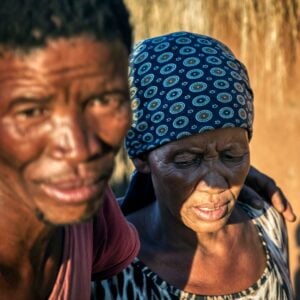At sunrise, Halima wades into the warm waters of the Indian Ocean, carrying bundles of rope that will become underwater seaweed gardens. For Halima and thousands of other women along Zanzibar’s coastline, these submerged plots are far more than an agricultural activity—they are a source of independence, a way to fund their children’s education, and a means of supporting their communities. Through seaweed cultivation, Halima is able to provide food for her family and invest in her home and community, highlighting the broader impact of this coastal livelihood.
Across Zanzibar, over 80 percent of the 23,000 seaweed farming families are women. Once a humble coastal practice, seaweed farming has grown into Tanzania’s second-largest export crop, offering economic empowerment opportunities that extend far beyond the shore. UN Resident Coordinator Susan Ngongi Namondo emphasizes that seaweed is not just a crop but a sustainable livelihood that supports families and communities over generations. Despite the global demand for seaweed in food and cosmetics, many farmers struggle with limited income due to lack of access to credit, insurance, and investment capital, restricting their ability to scale and reach international markets.
A breakthrough came when Zanzibar’s integrated financial approach to seaweed farming gained recognition at the Local2030 Coalition and Joint SDG Fund Design Sprint in Bilbao, Spain. This led to the creation of the Joint Programme on Transforming Seaweed Farming through Integrated Financial Solutions, funded by the UN Joint SDG Fund and implemented by FAO, UNDP, IFAD, and WFP in partnership with the Revolutionary Government of Zanzibar. The programme addresses critical bottlenecks in the sector by providing credit, insurance, and cooperative-based financing, enabling women farmers to expand production, diversify products, and access new markets.
For women without collateral or financial literacy, the initiative introduces de-risked lending schemes, microinsurance, and cooperative financing tools tailored to the realities of seaweed farming. The programme aims to reach 15,000 households by 2028 and increase incomes by 40 percent, translating into educational opportunities for children, improved homes, and stronger communities. Namondo highlights the initiative’s role in turning seaweed cultivation into a profitable business, with high demand both as a food and cosmetic product.
This new initiative builds on the Zanzibar Joint Programme (ZJP): Integrated Innovations for Sustainable Development, co-designed by the Government and the UN with support from the Royal Norwegian Embassy. The ZJP addresses poverty and inequality in Zanzibar’s most underserved regions through four transformative pathways, including enhancing seaweed production, strengthening cooperatives, promoting gender equality, and improving post-harvest handling and market access. Together, the programmes create a robust support ecosystem aligned with Zanzibar’s blue economy strategy and its vision of seaweed as a driver of inclusive growth.
The transformation in Zanzibar’s seaweed sector reflects a broader principle: sustainable development works best when it builds on existing community expertise while removing systemic barriers. By empowering local farmers and supporting their livelihoods, Zanzibar is cultivating a future of economic independence, resilience, and opportunity. As Namondo observes, these coastal farmers are not only shaping their own futures but also contributing to a stronger, more prosperous community for all.







